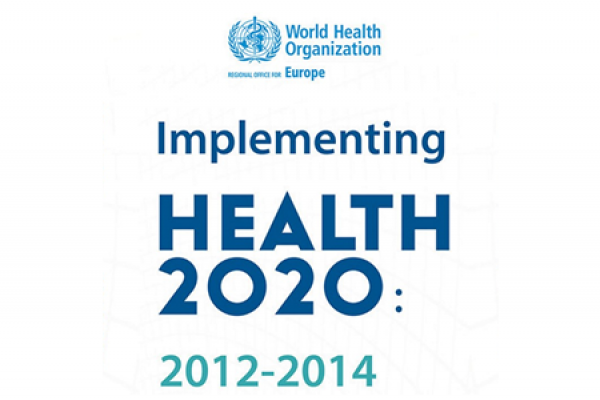World Health Organization (WHO) European Policy Health 2020 Adopted

On 12 September 2012 the WHO European Region adopted a sustainable policy to protect and promote the health of its 900 million citizens, particularly the most vulnerable. The comprehensive new policy, called Health 2020, was endorsed by the WHO Regional Committee for Europe, WHO’s governing body for the Region, during its meeting in Malta.
“There is a lot of action in different countries, by governments, donors, the private sector, nongovernmental organizations and other groups,” said Zsuzsanna Jakab, WHO Regional Director for Europe, “but we need these different players to pool their knowledge and work together. That is the only way we are going to reduce death and suffering. A European policy could be the beginning of a new united fight to save not just the lives of the citizens of today’s Europe, but also those of generations to come.”
The policy targets the main health challenges in the 53 countries in the Region, such as increasing health inequities within and between countries, shrinking public service expenditures due to the financial crisis, and a growing burden of ill health from noncommunicable diseases (NCDs), including obesity, cancer and heart disease. Its implementation will help mobilize decision-makers everywhere, within and beyond the boundaries of the health sector.
“So many factors affect health, and health has an impact on so many areas of our lives that progress on public health can only come from whole-of-society and whole-of-government efforts,” said Ms Jakab. “That is why there is a role for everyone to play in implementing Health 2020, from prime ministers, to civil society, to citizens.”
Professor Sir Michael Marmot, Institute of Health Equity, University College London, chair of the consortium developing the report on social determinants of health and the health divide in the WHO European Region, described how 13 task groups had reviewed the way countries can apply the best evidence to address the social divide, the health gradient and specific health issues across the WHO European Region. He concluded, “A reduction in health inequities should be one of the main criteria for assessing the effectiveness of health systems and governments as a whole.” Echoing the sentiments of Dr Margaret Chan, WHO Director-General, he appealed to countries to “put justice and equity right at the heart of policy-making”.
Professor Ilona Kickbusch, Director, Global Health Programme, is the main author of the study on governance for health in the 21st century within Health 2020. Speaking candidly, she explained, “Ministries of health have to change”. The increasing global power of markets, the financial crisis, and the growing voice of civil societies are factors that mean ministries of health and governments must involve more stakeholders in policy-making.
She elaborated that the role of health had changed; now accounting for up to 10–15% of gross national product and 10–15% of the workforce, a major exporter of goods and an element of trade and technology. Identifying the impact health has on other factors and its position in society is very important. Summing up, Ilona Kickbusch explained that in addition to addressing the social determinants of health, ministries of health had to find mechanisms for interacting with industry and “the commercial determinants of health”, and appeal to politicians to shift from political ideologies to values and thereby influence “the political determinants of health”.
The WHO/Europe web site http://www.euro.who.int/en/what-we-do/health-topics/health-policy/health-2020 offers further information on Health 2020.


